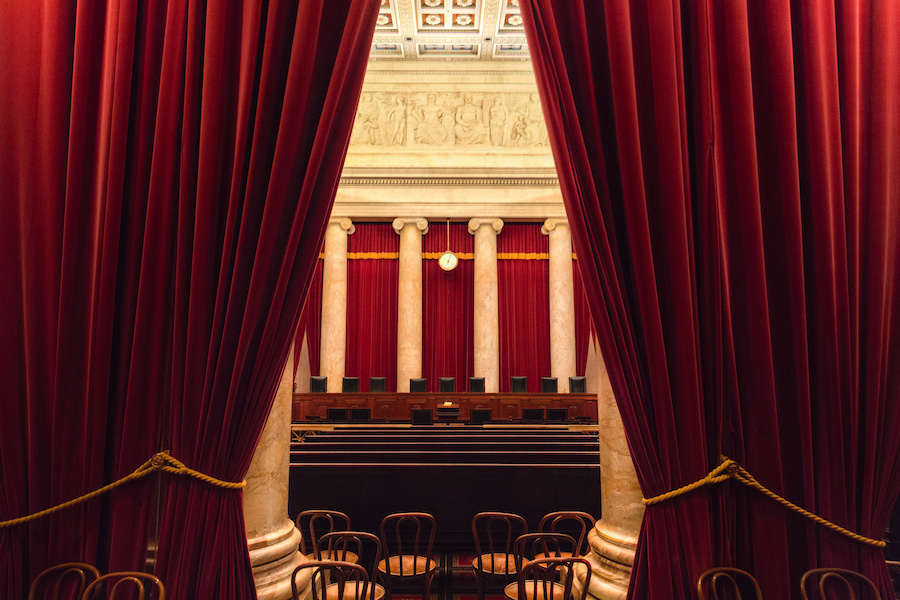It can be easy to forget considering everything else that has happened this year, but the Supreme Court is set to hear oral arguments for a case that could have enormous consequences for the Telephone Consumer Protection Act (TCPA). This case—Facebook v. Duguid—is the second major TCPA case that SCOTUS will hear this year, following this summer’s decision in Barr v. American Association of Political Consultants.
While the Barr decision was ultimately anticlimactic, resulting merely in the severance of the government-backed debt exemption while leaving the TCPA otherwise intact, Duguid has the possibility of being a much more significant bit of jurisprudence. This is because the case centers on the most contentious element of TCPA litigation: the law’s definition of what constitutes an automatic telephone dialing system (ATDS).
The text of the TCPA defines an ATDS)—colloquially known as an autodialer—as “equipment which has the capacity—(A) to store or produce telephone numbers to be called, using a random or sequential number generator; and (B) to dial such numbers.” In its 2015 TCPA Omnibus, the Federal Communications Commission (FCC) interpreted this definition broadly. In fact, its interpretation was so broad that the D.C. Circuit Court found, in its 2018 decision in ACA International, et al. v. FCC, et al., that it would potentially render every smart phone an ATDS. The court struck down this broad interpretation and, in the two years since, different circuit courts have reached wildly different decisions on how to interpret the ATDS definition. This has created a jurisdictional patchwork where, in some parts of the country, ATDS is defined very broadly while, in other parts, it is confined to a more narrow, statutory definition. Facebook v. Duguid directly addresses this question at a Supreme Court level and will likely produce a nationwide precedent on how to interpret the TCPA’s ATDS definition.
This article will look at the background of the case and explain the relevant developments leading up to oral arguments.
Background
Noah Duguid, the respondent, began receiving security-related text messages from Facebook in 2014. The messages alerted him that the social network had noticed suspicious activity relating to his account. There was only one problem: according to Duguid, he did not have a Facebook account. Duguid claims he told as much to Facebook but they continued to send him texts.
Accordingly, Duguid filed a class action against Facebook in the Northern District of California court, claiming that it had violated the TCPA’s restrictions on sending texts via ATDS without proper consent. Facebook offered a two pronged defense: 1) claiming that the system that it used to send the messages did not qualify as an ATDS because the messages are sent to specific, targeted numbers rather than randomly or sequentially generated numbers; and 2) the TCPA is invalid due to the 2015 government-backed debt exemption serving as an unconstitutional, content-based restriction on speech. This latter point was essentially the same as the AAPC’s argument in the Barr v. AAPC case.
Ultimately, Facebook, with some assistance from the federal government, won a dismissal on the ATDS argument. Duguid appealed to the Ninth Circuit Court of Appeals. Because the Ninth Circuit had already set a precedent for defining an ATDS very broadly in the infamous Marks v. Crunch San Diego ruling, the court ruled in Duguid’s favor. Facebook petitioned the case to the Supreme Court.
Timeline
July 9, 2020 – The Supreme Court grants certification to Facebook’s petition. Because this came 3 days after the court had ruled on the government debt exemption in Barr v. AAPC, the court will only hear arguments relating to the ATDS question.
September 4, 2020 – Facebook filed its brief as the petitioner. The Department of Justice also filed a supplemental brief as a respondent for the petitioner. The DOJ’s brief argues that the TCPA’s ATDS definition should be interpreted in the narrowest possible terms as, essentially, a device that dials random phone numbers. This is a notably unambiguous argument in favor of the statutory ATDS definition.
October 16, 2020 – Duguid’s lawyers file their brief as the respondent. Notably, the brief was written in consultation with Bryan Garner, a famed legal scholar, lexicographer, and editor of Black’s Law Dictionary. Garner offers a complicated linguistic argument in favor of the more broad, Marks-style interpretations of the ATDS definition. Notably, Facebook’s lawyers repeatedly cited Garner’s book Reading Law, co-written with the late Supreme Court Justice Antonin Scalie, in their own brief, which Garner rebuts in the respondent’s brief.
October 23, 2020 – The attorneys general of 37 states filed an amicus brief arguing against a more narrow definition of an ATDS. The crux of the argument is that the TCPA’s regulations on autodialers make for a more effective method of curbing illegal robocalls than state-level robocall laws.
October 26, 2020 – Amy Coney Barrett was confirmed as a Justice to the Supreme Court. While making assumptions about how individual Justices will rule in particular cases before oral arguments are heard is often a fool’s errand, Barrett has actually recently ruled on the ATDS question. In early 2020, Barrett, serving as a judge on the Seventh Circuit Court of Appeals, wrote the opinion in Gadelhak v. AT&T Services that argued in favor of a more narrow interpretation of the ATDS definition. It is likely, if not exactly certain, that she would be inclined to maintain favor for that interpretation in Facebook v. Duguid.
November 16, 2020 – Facebook and the DOJ filed reply briefs, largely focusing on grammatical arguments against the respondent’s explanation of why ATDS should be defined broadly.
Also, throughout the months after SCOTUS granting certification leading up to oral arguments, multiple courts granted stays in TCPA lawsuits pending the outcome of Facebook v. Duguid.
